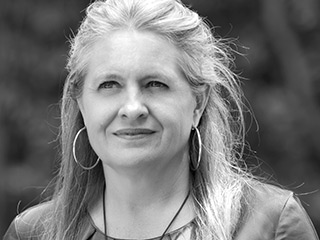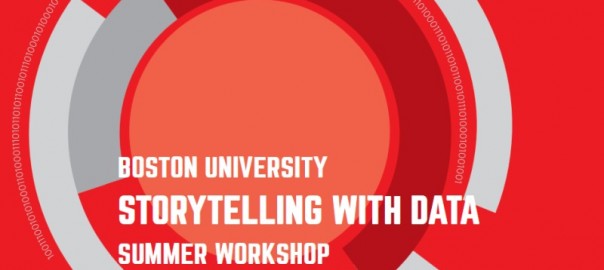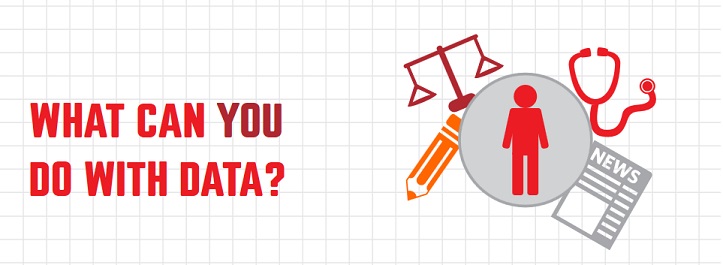By Michelle Marino
MS Journalism ’15
BU College of Communication
We live in a digital world. No matter what you do or what profession you’re in, this reality permeates everything around us. In the communications field especially, it has never been more critical to embrace digitization to effectively gather, analyze and disseminate information. Aside from a compelling narrative, finding ways to insert data and help people visualize information is vital.

It’s no coincidence the Fall 2014 issue of COMtalk (BU’s College of Communication publication for alumni, parents and friends) listed data storytelling as one of three major trends affecting journalism today. Within the issue, many of COM’s professors are featured for their keen efforts in providing students with the tools needed to succeed in a changing field; one of those professors is Maggie Mulvihill. This COM Journalism professor is dedicated to getting students on board with using data not only to enhance their story’s credibility, but also arm them with valuable skills eagerly sought out by employers.
Professor Mulvihill, whose background is in watchdog and investigative reporting, has been using data to inform her stories for over 20 years. She ran a Storytelling with Data workshop at BU this summer, and is currently teaching a class this semester—Data Storytelling. The course focuses on learning how to identify and obtain appropriate data, how to download and extract, clean, analyze and finally bring it to life through data visualization. “No matter what occupation, we need to know how to work with digital information,” says Mulvihill. “All records are being digitized. In three to five years, government information will be streaming instead of static. Journalists have to be able to harness and capture information as it’s streamed and tell stories,” she says.
Data is important, but when coupled with good journalistic skill, it can be powerful. Especially when analyzing, if you’re asking the right questions, your data can serve to elevate your story in a meaningful way. Although most of us aren’t statisticians or research scientists, as social scientists we’re able to ask the right people to fairly and accurately assist us with data interpretation.
Currently, Mulvihill has a student in her class working on a story with the use of government data. After analyzing this data and obtaining a statistical finding, the question of statistical significance comes into play. Mulvihill asks the question, “Is it statistically significant to be news?” In other words, to be newsworthy, data has to provide information that isn’t already out there and doesn’t serve as an outlier. The student looking at government data consulted with a statistics professor who advised them to get more data so they could look at a broader spectrum of information. In the end, these types of consultations will ensure a statistically sound story.
Along with journalistic skill, data is always more effective when presented with a human face. “It can’t just be statistics and government records,” says Mulvihill. “It has to have a strong character driving the story so people who read, watch and care about it can identify.” This is why Mulvihill asks her students to choose a character at the beginning of the story development process to focus on throughout.
Mulvihill is also in the process of developing a computational journalism initiative at BU. She says there is a sense of urgency for journalists to move in the direction of telling stories with data, and more and more people studying journalism are learning and integrating computer science into their careers. “There are so many jobs for journalists now with data storytelling skills,” says Mulvihill. “It’s prominent and it’s not just limited to journalism, it’s every profession,” she says. “I love the ability to do stories other people can’t.”
What are your thoughts on incorporating data with journalism? Let us know in the comment section below.
Interested in BU’s College of Communication graduate programs? Visit our website here and you can find out what it takes to earn your MS in Journalism at BU.


